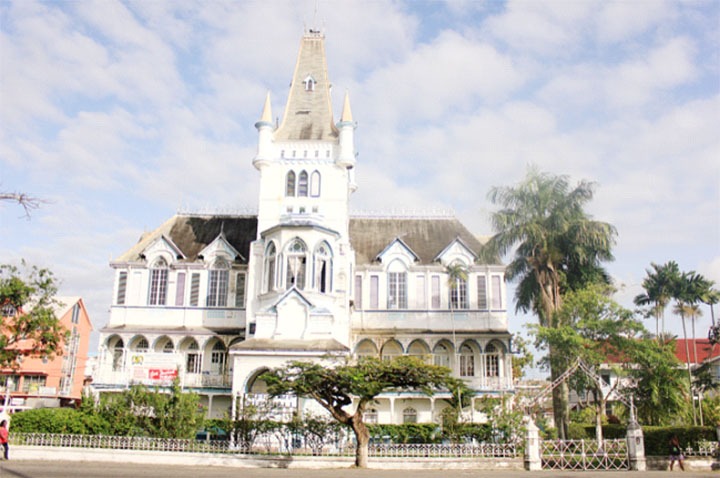Town Clerk Royston King yesterday called on the Georgetown City Council to consider reducing staff at City Hall, which he said is struggling to manage the capital on a “shoestring” budget.
“It is becoming increasingly challenging for us to sustain the current staff levels and at the same time provide certain basic municipal services,” King said at yesterday’s statutory council meeting.
He explained that on average council’s revenue is $78 million to $80 million each month, while the monthly wage bill is $112 million. This high wage bill makes it difficult for City Hall to provide services, while servicing its debt to other agencies such as the Guyana Power and Light Incorporated (GPL), which it owes billions.
“We are managing on a shoestring budget. We need money. We have to consider the economics…We need a sensible approach to how we manage the council’s business. The only sensible approach is to downsize and reengineer if we are unable to generate more money,” he repeatedly stressed.
The city’s chief administrator painted a dismal picture of the council’s ability to function over the next few months, while noting that it is currently racking up more debt by failing to pay statutory contributions to the National Insurance Scheme (NIS), the Guyana Revenue Authority (GRA) and the staff credit union.
In February, City Treasurer Ron McCalman said that the Council owed the credit union $36 million and the NIS $134 million ($116 million before interest).
At the time, he had explained that a plan had been worked out between the Council and NIS for the payment of the amounts owed, but meetings were still to be held with GRA and the Guyana Public Service Credit Union to discuss the way forward on the other debts.
King announced yesterday that he met with GRA last Friday and discussed the way forward. He did not state whether a payment plan had been finalised.
The Town Clerk was adamant that something must be done soon since “we have a situation where the people [workers] we are trying to help and support are not really supporting us.”
He bemoaned the fact that unpaid workers have in the past utilised industrial action to encourage the city to meet its commitments.
“Some staff are unsympathetic to our situation to the point where there are strikes when we are unable to pay…and we have to hear all sorts of snide remarks,” he told the Councillors before urging that they start the difficult process of finding a way forward now.
“It is a process and I recommend respectfully that we begin this process now. This is not to say we are sending people home but we need to be aware…we are in the month of April and our payments for NIS and PAYE [Pay As You Earn] and the credit union have not been paid,” King stressed.
He also called on council to once again begin considering the by-laws for the implementation of a container fee and a littering fee.
In August, 2016, a fee was instituted for the use of city roads in the transport of commercial containers. Initially set at $25,000, the fee was reduced to $5,000 on an interim basis and a tripartite committee set up to negotiate by-laws. That committee has since lapsed into dormancy while the interim fee continues to bring City Hall an average of $10 million a month. For the period August to December, 2016, the council collected $57.9m in container fees.





